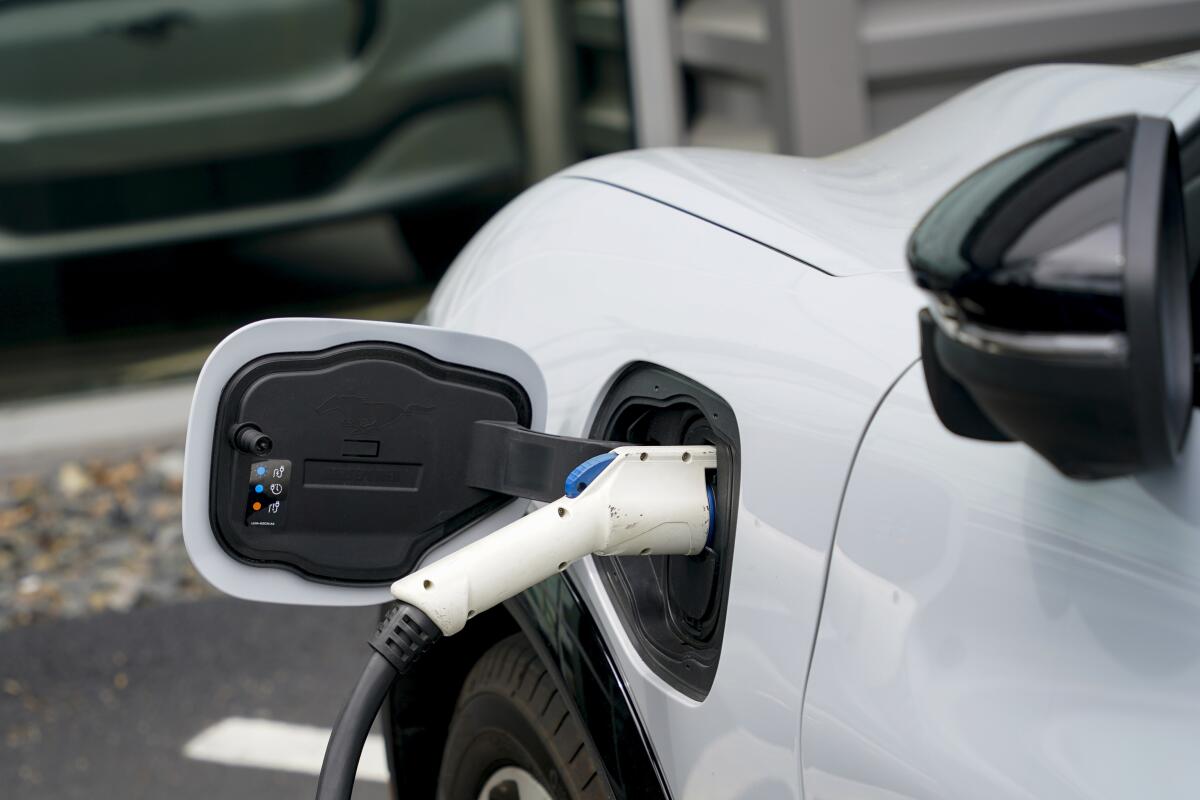Court upholds Minnesota ‘Clean Car Rule’ tied to California

ST. PAUL, Minn. — The Minnesota Court of Appeals on Monday upheld the state’s “Clean Car Rule,” which ties the state’s vehicle emission standards to California regulations, as judges accepted assurances that California’s planned phaseout of gasoline-powered cars won’t automatically apply in Minnesota.
A three-judge panel rejected the arguments of Minnesota’s auto dealers, who argued that state pollution regulators exceeded their authority and unconstitutionally delegated their rule-making authority to California.
The appeals court concluded that the Minnesota Pollution Control Agency acted within its statutory authority and that the state’s rule is therefore valid. The decision was a victory for the administration of Democratic Gov. Tim Walz, which adopted the rule in 2021 amid a fight with Republican lawmakers who were upset that the Legislature was cut out of the decision. It takes effect in the 2025 model year and is meant to increase the supply and selection of electric vehicles.
The Minnesota Automobile Dealers Assn. expressed disappointment with the ruling and said it would consider whether to appeal. As manufacturers are ramping up production, the group contends that the rule could saddle dealers with more electric vehicles than consumers want to buy.
“The one good thing to come from today’s decision is that if Minnesota wants to go forward with the new rule recently adopted by California, the MPCA will need to affirmatively conduct new rulemaking,” Scott Lambert, president of the association, said in an email.
According to the California Air Resources Board, 17 states have chosen to link their emission standards to California’s, which are stronger than federal regulations. Under the federal Clean Air Act, states generally must follow California’s standards or default to the the federal standards. The issue further heated up after California last August went even further, putting itself on a strictest-in-the-nation path toward requiring that all new vehicles be electric or hydrogen-powered by 2035.
That decision is forcing the other states to decide whether they now want to follow California down that path. Vermont, New York, Oregon, Washington, Massachusetts and Delaware have either already adopted similar new rules, begun rule-making or indicated interest in doing so. Colorado has decided not follow California’s ban but has committed to continuing to expand its electrical vehicle market and to increase consumer access to more models.
The Minnesota Court of Appeals accepted the MPCA’s arguments that the state would have to launch an entirely new rule-making process to adopt California’s ban on new gasoline-powered vehicles. Agency officials said in court filings, legislative hearings and at a news conference with the governor last year that they had no immediate plans to do so, but they didn’t rule it out, either.
An MPCA spokesman said the agency was working on a response to the court ruling.
Lambert said California’s rules were never a good fit for Minnesota.
“This supply mandate run by California bureaucrats does not address the main hurdles in the way of getting consumers into electric vehicles,” he said. ”The state should be instituting an aggressive policy of building infrastructure and creating incentives for consumers to purchase this new technology.”
Maintaining the Clean Car Rule was part of a broad framework for fighting climate change that Walz rolled out in September, and the governor affirmed his commitment to it in an interview earlier this month. Meanwhile, Democrats who now control both chambers of the Minnesota Legislature have made fighting climate change one of their top priorities for the current session. The House earlier this month passed a fast-track bill to put Minnesota on a path to 100% carbon-free electricity by 2040, and it’s now awaiting a floor vote in the Senate.
Associated Press writer Lisa Rathke contributed to this story from Marshfield, Vt.
More to Read
Sign up for Essential California
The most important California stories and recommendations in your inbox every morning.
You may occasionally receive promotional content from the Los Angeles Times.










